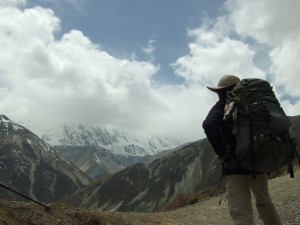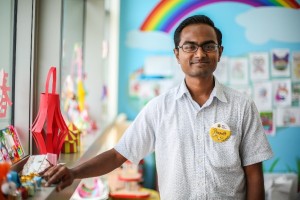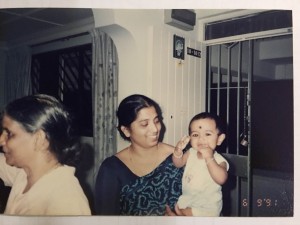The prize ceremony for this year’s Goh Sin Tub Creative Writing Competition was held on 1 June. Dr Sylvia Goh was the guest-of-honour for the event, and she presented prizes to the winners. In the first of a two-part series, we speak to some of the winners of the Competition. Here we talk to Isaac Lim who won Second Prize for his play Whither Are We Going.

Q: Could you tell us what your play is about and what inspired its writing?
Whither Are We Going, put simply, is about identity. As much as I hate to say this, it involves globalization, and the millenials’ concept of language and their questioning of national identity and meritocracy. Sneaked within are two ambiguous relationships that never quite work out, and some sort of political commentary on Singapore and our neighbors.
Through this work, I hope to raise the issues of who we are as Singaporeans, our identity, and if we as a nation are perhaps too competitive (which is not for our own good). It questions Singaporean millenials’ position in the diverse world we live in today.
Q: You are currently also part of the undergraduate program in theatre in NUS. Does your academic studies in theatre have any influence on your creative writing?
I’ve actually just completed my BA (Hons) in Theatre Studies here at the Faculty of Arts and Social Sciences in NUS, and the four years have taught me so much about theatre and performance. I am glad that I’ve been provoked to think of issues in very different ways, and am allowed to see things from various perspectives and angles.
There are two modules which I consider to have a big impact on my writing today–firstly “Introduction to Playwriting” and thereafter “Advanced Playwriting,” both of which are taught by Ms Faith Ng. The two modules exposed me to various play genres, and challenged me to attempt writing works that I would never have tried before. It is in these two modules that I learned playwriting skills. I also met a great group of classmates who are unselfish in sharing ideas and opinions as we do peer reading and reviews in each class session.
Another module that influenced me is “Singapore English Language Theatre,” taught by Dr Robin Loon. The module offers a comprehensive survey of the vast collection of original works churned out by Singaporean or Singapore-based playwrights over the years. The intensive course tasked us to read and understand the history of local theatre development, and opened my eyes to the fantastic world of Singapore literature. It aspired me to want to be part of the scene in the near future and to add to its library of creative texts.
Q: Could you share some of your thoughts on the theatre scene in Singapore today? What are some of your hopes for Singapore theatre?
I believe that the theatre scene is burgeoning even more today than a decade ago. More people are willing to be audiences to support original local works. The next three months alone, we get to see at least five local theatre-related festivals, from Peer Pleasure, a festival for school drama groups, to the Twenty-Something Theatre Festival which serves as a platform for young emerging writers. We also have the Singapore International Festival of Arts, which attracts a vast regional and international audience.
I myself watch a rather broad range of theatre shows, from headline productions to fresh, independent works. I am especially intrigued by the works of Chong Tze Chien, especially writings like Pan Island Expressway (1998) and Charged (2010). I am also inclined to favoring works by Natalie Hennedige whom I have had the pleasure of working with; Hennedige directed me in my Play Production module. Hennedige’s works are bold and provocative, and focus much on the craft of storytelling among other things.
The past year has been a good one for me as I “venture” into the professional theatre scene in Singapore. Post-graduation, I am open to working freelance as a theatre practitioner, and believe there are many more things to be learned. There is space for growth in the Singapore theatre scene, as emerging writers, actors and directors are slowly taking to the stage. My hope is that there will be more funding from the authorities to push for a more vibrant arts scene and that theatre can reach out to more audiences because there are many stories waiting to be told. Theatre always provides food for thought, and is always targeted at the masses. If Singaporeans do not support Singapore theatre, who will?
Q: What are your future plans? Are there further plays or productions in the pipeline?
I am currently looking for work opportunities, including teaching theatre and drama to young children. As mentioned earlier, I am also very ready to be a freelance theatre practitioner in Singapore. If there are opportunities for further studies in the near future, I would like to do research and learn about directing and dramaturgy.
This prize has been a great encouragement to me. I hope to further develop this piece–Whither Are We Going?–through the National Arts Council-Mentor Access Project. My aim is to complete the work into a full-length piece, and perhaps have it staged within the next 2 years.
With the prize money, I also seek to start a collaboration with my peers to put up the work on stage. Currently, Between Consciousness, an earlier play of mine, is being worked on and I am seeking people who have interest to come together to develop the writing into a stage production.


